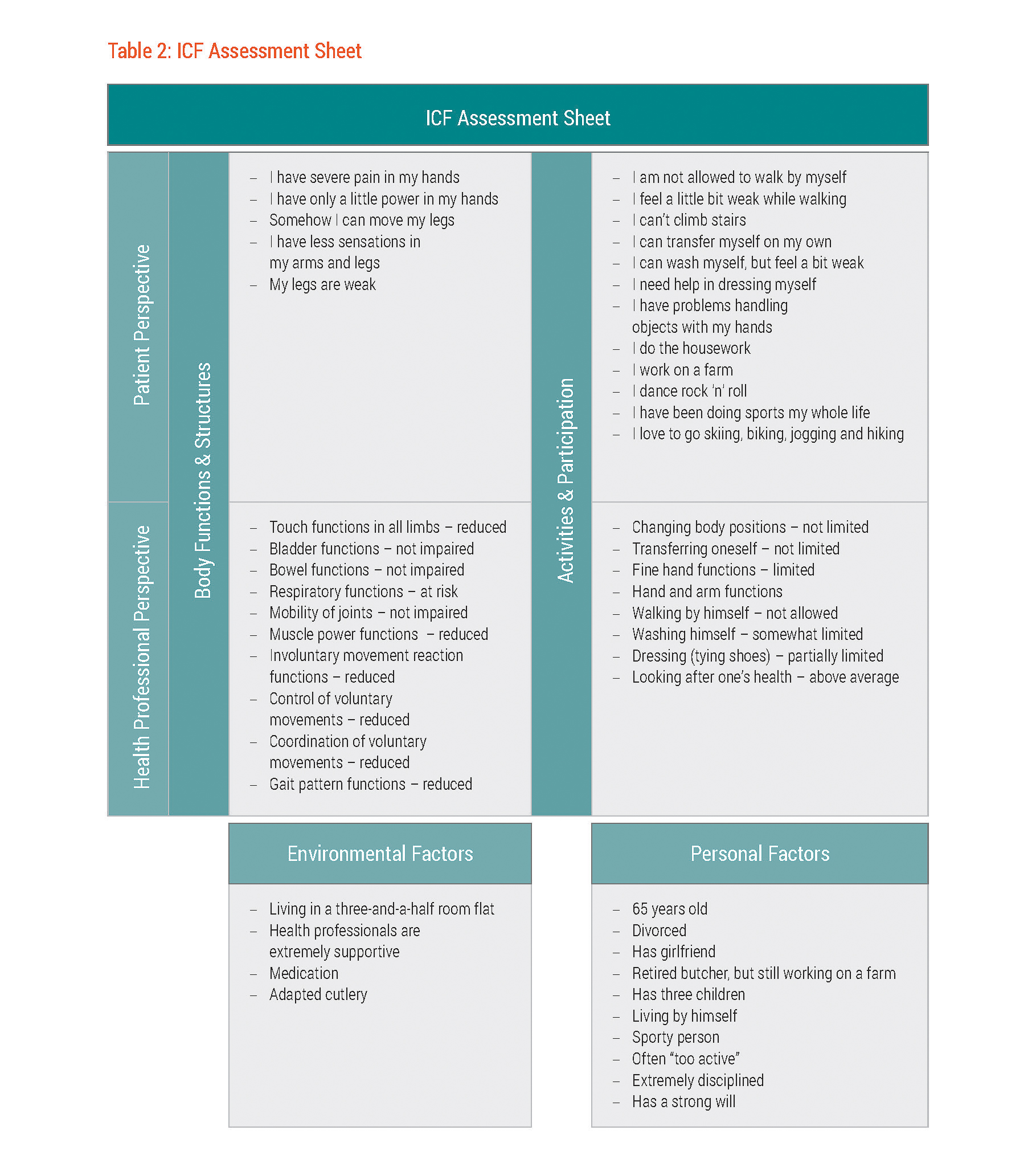Assessment
Treatment at the rehabilitation unit began with the rehabilitation team’s assessment of Mr. Seiler's functioning. The 4-week assessment encompassed a battery of discipline-specific evaluations (health professional perspective) and also involved gathering information from Mr. Seiler himself (patient perspective).
Kicking-off the Rehab-Cycle®
Throughout the Rehab-Cycle® the ICF components of body functions, body structures, activities and participation, environmental and personal factors are kept in mind in all rehabilitation activities. Especially in the assessment phase of the Rehab-Cycle®, assessment results as documented on the ICF Assessment Sheet are structured according to these ICF components, and differentiated between the ‘health professional perspective’ and ‘patient perspective’. See table 2 ICF Assessment Sheet.

Table 2: ICF Assessment Sheet
With regards to Mr. Seiler's perspective, he saw as important elements of his functioning the aspects of body functions that focused on hand pain and aspects of activities and participation that centred on mobility and independence. The combination of reduced muscle power and strong pain in his hands limited Mr. Seiler's ability to perform various tasks that required the use of his hands such as handling objects and self-care activities like washing and dressing himself. In fact, he was dependent on the nurses to assist him with self-care.
Moreover, due to the reduced muscle power in the lower extremity, or in Mr. Seiler's own words "my legs are weak", he was not able to climb stairs. He also associated walking on flat surfaces with a feeling of weakness and insecurity. Mr. Seiler's subjective experience of walking was confirmed by the rehabilitation team's assessment results – his impaired gait patterns and the lack of coordination functions increased his risk for falls. Consequently Mr. Seiler was not allowed to walk by himself, at least at this point in time.
""The information and data obtained during the assessment phase would inform goal-setting, the determination of interventions targets, and intervention planning.""
In addition to assessment findings in body functions, and activities and participation, the ICF Assessment Sheet showed other relevant factors, such as Mr. Seiler's strong will and disciplined personality, that had an impact on the course of the subsequent Rehab-Cycle® phases. The information and data obtained during the assessment phase would inform goal-setting, the determination of interventions targets, and intervention planning.